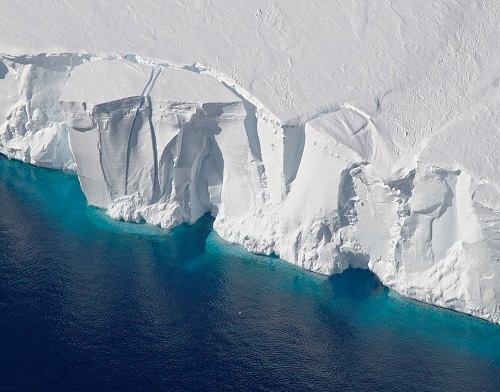The Milne Ice Shelf which is the last fully intact ice shelf in the Canadian Arctic has collapsed and is now adrift, The shelf’s area shrank by about 80 sq km, losing more than 40 per cent of its area.
“Entire cities are that size. These are big pieces of ice. This was the largest remaining intact ice shelf, and it’s disintegrated, basically,” said Luke Copland, a glaciologist at the University of Ottawa who was part of the research team studying the Milne Ice Shelf.
The ice shelf is located at the fringe of the sparsely populated Ellesmere Island, partially surrounded by the Tuvaijuittuq marine protected area in Nunavut, northern Canada.
Tuvaijuittuq means “the place where the ice never melts” in Inuktitut.
“Above normal air temperatures, offshore winds and open water in front of the ice shelf are all part of the recipe for ice shelf break up,” the Canadian Ice Service said on Twitter when it announced the loss.
In 2017, scientist Mark Serreze predicted the St. Patrick’s Bay ice caps, located on Ellesmere Island in Nunavut, would vanish within five years.
“But their official death came two years earlier than expected and was set in stone this August,” said Serreze.
Smaller ice caps can melt quickly now because they do not have the bulk that larger glaciers have to stay cold. As a glaciers disappear, the melting process accelerates as more bedrock is exposed.
Ice caps will often shrink during the summer then recover as winter approaches. However, Serreze said that recovery is not possible this time as they won’t be cooling down again due to rapid pace of climate change.
The Milne ice sheet is home to bottom dwelling animals such as scallops and sea anemones. “This unique ecosystem may well have disappeared as a result of this collapse “said Derek Mueller, a professor at Carleton University.
The Arctic has been warming at twice the global rate for the last 30 years, due to a process known as Arctic amplification.
Temperatures in the polar region have been intense this year. In July the polar sea ice hit its lowest extent in 40 years while record heat and wildfires have scorched Siberian Russia.
This has caused concern on how communities in the Arctic, the Inuit in particular are able to adapt as they rely on ice cover and have an interconnected relationship with the environment.
Natan Obed, the Inuit Tapiriit Kanatami (ITK) climate change strategy president said “for us, ice is a fundamental source of learning, memories, knowledge and wisdom.”











